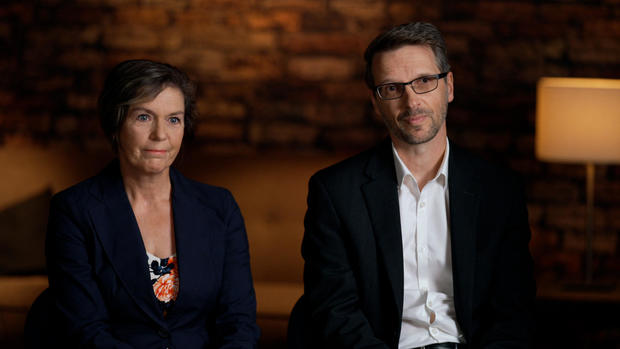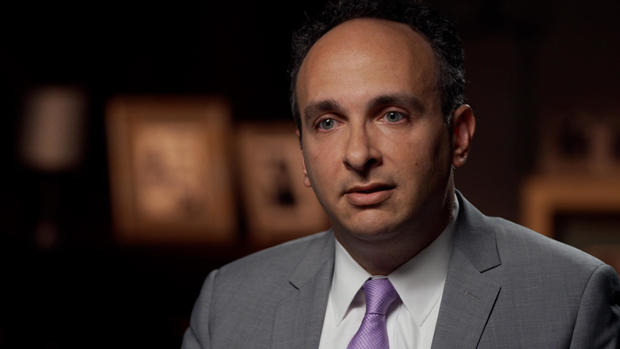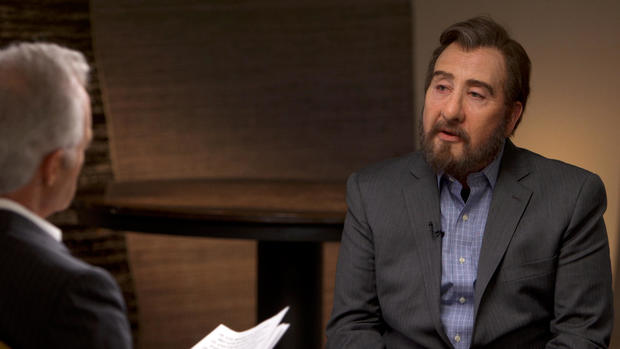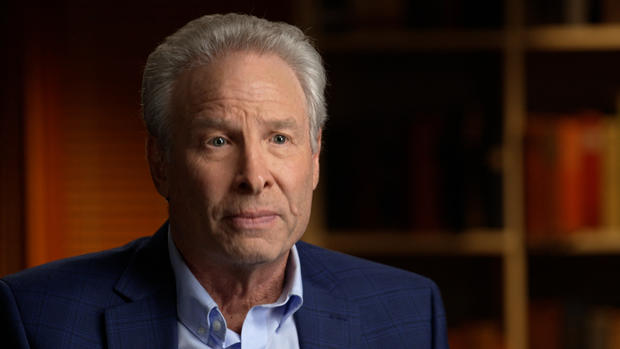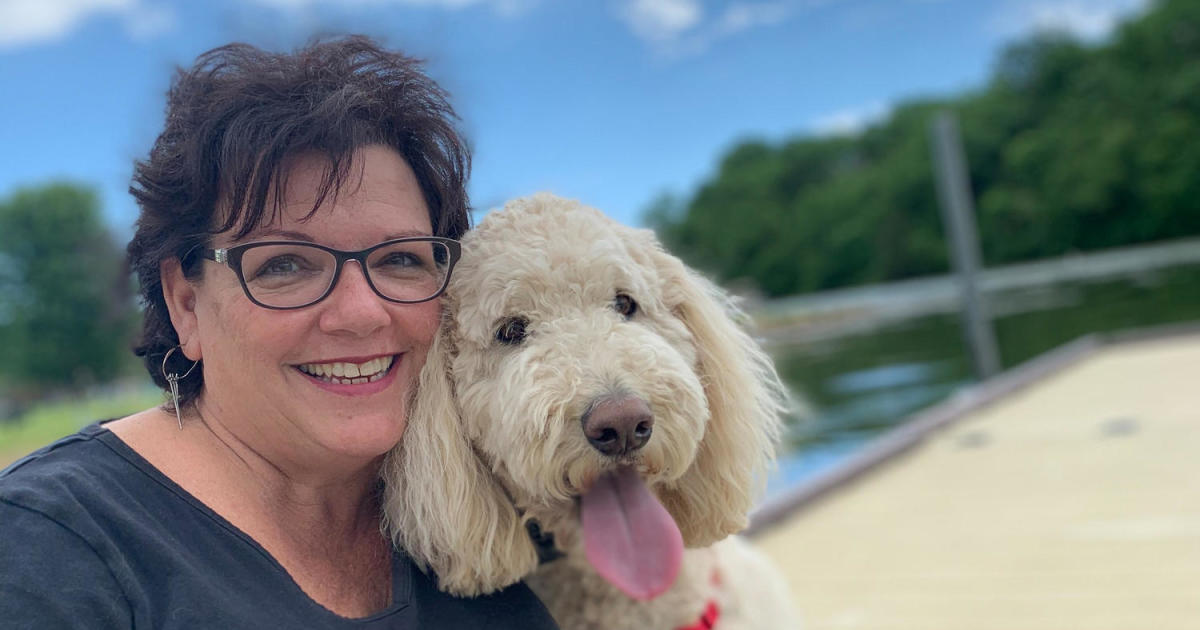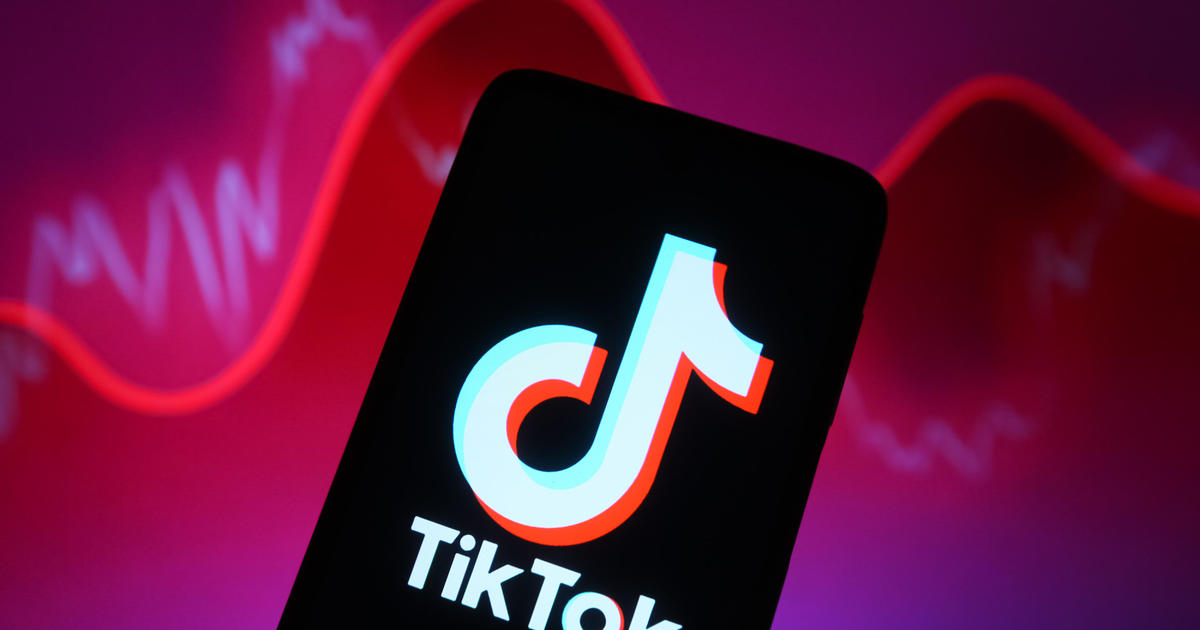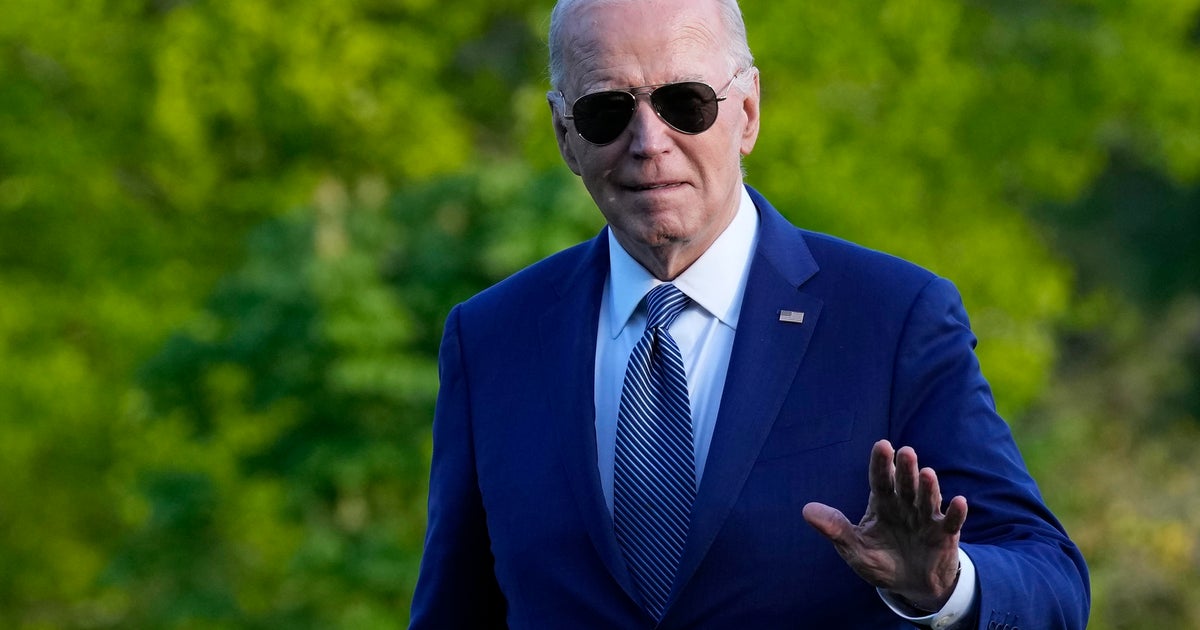Why victims of internet lies want Section 230 repealed
A priority of the new president and Congress will be reining in the giants of social media. On this, Democrats and Republicans agree. Their target is a federal law known as Section 230. In a single sentence it set off the 'big bang' helping to create the universe of Google, Facebook, Twitter and the rest. Some critics of the law say that it leaves social media free to ignore lies, hoaxes and slander that can wreck the lives of innocent people. One of those critics is Lenny Pozner. After a tragedy in his own life, Pozner has become a champion for victims of online lies, people including Maatje and Matt Benassi, who, overnight, became the target of death threats like these.
Maatje Benassi: "We're gonna put a bullet in her skull." "Let's load up the trucks." "Let's go get 'em." "Let's hang 'em." They posted our address, our full address, where we live.
The hate focused on Maatje and Matt Benassi, was unleashed by a hoax that claims she brought COVID-19 into the world.
Matt Benassi: It's changed and migrated over the 70-plus videos that they've had about us. But--
Scott Pelley: Wait. Seventy?
Matt Benassi: Yeah. If you actually go through all of the videos there is a total 70 videos across multiple YouTube channels.
The videos claim Maatje Benassi carried the virus to China on a bicycle. She was invited there as a member of a U.S. military cycling team. Maatje is a Dutch immigrant, American citizen and solider who served in Iraq. In 2019, during an international military Olympics, she crashed in Wuhan, where COVID-19 was discovered two months later. Her collision with the internet began after an innocent article about the race.
Maatje Benassi: And somebody came across it, and it had Wuhan in it, and they took a run with it. "Oh, we got a person."
Scott Pelley: Your name, the name Wuhan, and the rest only takes a lot of imagination.
Maatje Benassi: Correct.
Scott Pelley: What were they saying about you?
Maatje Benassi: First they said I brought it to China. And when I crashed, I spread it. And that I spread it in the hospital which I never was in a hospital. All these lies about vials in my bicycle hidden. And I have no idea.
The absurdity was spelled out, literally, by a hoax peddler named George Webb. He has a following among the "deep state" phony conspiracy crowd.
Scott Pelley: What has this meant to you?
Maatje Benassi: I was looking over my shoulder a lot. I was scared for my life
Scott Pelley: You were taking all that seriously?
Maatje Benassi: Yes. Once my address was posted, that was it for me. That did it. Because they put me in danger, my family.
Matt Benassi: There was like 60 or 70 death threats over the span of, you know, four or five weeks.
They called the police and the FBI which got them nowhere.
Matt Benassi: And the reason why the FBI and the police don't want to talk to you is because even though we're receiving death threats they didn't say, we're coming to the Benassis to kill them tonight.
Scott Pelley: They need a crime to have been committed.
Matt Benassi: That's correct.
Scott Pelley: And you're trying to prevent a crime from being committed.
Matt Benassi: Absolutely.
Right about now you might be thinking, they should sue. But that's the problem. They can't file hundreds of lawsuits against internet trolls hiding behind aliases. And they can't sue the internet platforms because of that law known as Section 230 of the Communications Decency Act of 1996. Written before Facebook or Google were invented, Section 230 says, in just 26 words, that internet platforms are not liable for what their users post.
Jeff Kosseff: That means that if I were to post something about you on Facebook that was awful and defamatory and you actually had a viable defamation lawsuit, you could sue me, but you can't sue Facebook.
Jeff Kosseff teaches law and wrote a book called "The 26 Words that Created the Internet."
Scott Pelley: But help me understand, the same is not true for other forms of media. If somebody says something defamatory on 60 Minutes or on Fox or CNN or in The New York Times, those organizations can be sued. So why not Google, YouTube, Facebook?
Jeff Kosseff: So the difference between a social media site and let's say the Letters to the Editor page of The New York Times is the vast amount of content that they deliver. So I mean you might have five or ten letters to the editor on a page. You could have I think it's 6,000 tweets per second. And so Section 230 really recognizes how exceptional the internet is and says, "We want to encourage this marketplace of ideas." 25 years later, that marketplace has a lot of really great stuff, but it also has a lot of really terrible products in that marketplace. And that's really what's driving this debate right now.
Maatje and Matt Benassi quickly discovered the law was not on their side so they turned to Lenny Pozner who had suffered in the same way.
Lenny Pozner: I was being attacked, the memory of my son, my son's very short life was being attacked. And I just wasn't going to stand for that.
The very short life of Pozner's son, Noah, ended at Connecticut's Sandy Hook Elementary School in 2012, with 25 others. The gunshots of a madman have ricocheted online ever since.
Lenny Pozner: Conversations denying the tragedy-- accusing the government of staging it.
Scott Pelley: What was the most hurtful thing they said about you?
Lenny Pozner: That Noah did not die. That I'm not Noah's father. It all revolves around the notion that these are staged shootings, that they're scripted events, that I'm an actor, that I'm paid to fake the death of a child.
Before the COVID pandemic we hired theatrical makeup artists to disguise Pozner for his safety. He's pursued by death threats. One woman left a voicemail saying, "Death is coming for you real soon." She landed in prison sooner.
Scott Pelley: How many times have you had to move your family?
Lenny Pozner: Around seven times.
He's targeted because he's invented ways to fight back. He copyrighted photos of his son to control how they are used. He published a letter to Facebook's CEO that read, "[You] have deemed… our lives are less important than providing a safe haven for hate."
Scott Pelley: This was meant by you and your ex-wife to be public shaming of Facebook?
Lenny Pozner: That has been really the only effective way to get change for online platforms.
After the letter, a Facebook manager called Pozner.
Lenny Pozner: It began a relationship with Facebook that helped them learn about the material that is being posted on their platform and how it is abusive, defamatory
Scott Pelley: Have you seen a difference, a practical difference in Facebook?
Lenny Pozner: Yes, it's almost all gone.
Pozner expanded his work into a non-profit called the HONR Network—that applies what he has learned to help others.
Andy Parker: That's when I reached out to Lenny Pozner, He had volunteers that were fighting harassment-- And I said, "Lenny, I want this video to come down." And he said, "I will help you do that."
By himself, Andy Parker couldn't get video of his daughter's murder off of Google's YouTube.
Andy Parker: I really expected them to do the right thing. their motto was, "Don't be evil." And for a while, they did a pretty good job of it. But now, they are the personification of evil.
In 2015, reporter Alison Parker and cameraman, Adam Ward, were shot, on camera, by a fired co-worker. The scene has been posted hundreds of times. This one got more than 600,000 views. And to the right, the automatic ad means the person who posted this made money and so did YouTube.
Andy Parker: We shouldn't have to be the ones policing their platform. Their terms of service say, "We don't allow this. We don't allow violent content. We don't allow harassment. My biggest beef with Google, and YouTube, and Facebook for that matter is, that video is still out there. It's still out there today in essence, they profit from my daughter's murder. And I can't abide by that.
Scott Pelley: Do you worry about threats?
Andy Parker: No, I really don't.
Scott Pelley: Why do you feel so brave?
Andy Parker: Because Alison would expect nothing less.
Scott Pelley: You're still her dad.
Andy Parker: Yeah, I'm her dad. Always will be, and I will fight like hell-- for her.
Lenny Pozner flagged Alison Parker videos for YouTube to remove.
YouTube wrote us, "There is no place on YouTube for content that exploits this horrendous act, and we've spent the last several years investing in tools and policies to quickly remove it." YouTube told us it now prioritizes all requests from Pozner's HONR Network.
Scott Pelley: Why do you think the online platforms have not been effective in enforcing their own terms of service?
Lenny Pozner: I don't think they were prepared for their online platforms to be used this way. I think they were more focused on growth and expansion and likely had more of an idealized notion of the internet and the way it would be used for the greater good.
Scott Pelley: An idealized notion of human nature?
Lenny Pozner: Yeah, well, yes.
Pozner also has been successful pulling down much of that COVID-19 lie that shadows Maatje and Matt Benassi. He got hoax peddler George Webb kicked off YouTube.
Recently, some platforms took first steps toward editing their users. Facebook and Twitter flagged dubious content during the election. Now they're doing the same for myths about COVID-19.
Scott Pelley: Based on what you've had to learn about all of these things, what do you think the solution could be?
Matt Benassi: This is really, really hard, right? 'Cause Section 230. When that was written, it was probably done with the intent that social media companies would police themselves in some manner. And social media companies haven't done that very well. They need to police themselves quicker or the government needs to step in and figure out some mechanism to make them liable. 'Cause making them liable would make them police themselves.
But making social media liable would also mean Facebook, Twitter, even Wikipedia and Yelp, couldn't exist as we know them. President-elect Biden wants to revoke Section 230. The federal government is already suing to break up Facebook and Google. No one can say what social media 2.0 will look like or whether the innocent will ever be protected from a world wide web of lies.
Produced by Henry Schuster. Associate producer, Sarah Turcotte and Rachael Kun Morehouse. Broadcast associate, Ian Flickinger. Edited by Warren Lustig.
